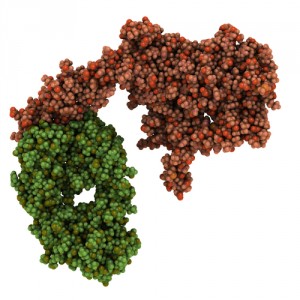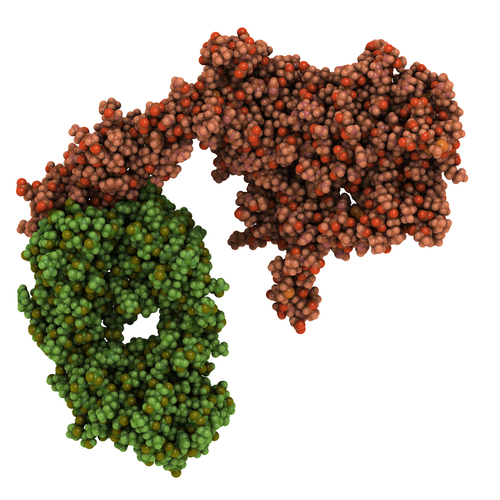 Researchers from the University of Texas MD Anderson Cancer Center presented a new breast cancer immunotherapy vaccine candidate, GP2, at the 2014 American Society of Clinical Oncology’s Breast Cancer Symposium in San Francisco.
Researchers from the University of Texas MD Anderson Cancer Center presented a new breast cancer immunotherapy vaccine candidate, GP2, at the 2014 American Society of Clinical Oncology’s Breast Cancer Symposium in San Francisco.
These data are a result from a phase II randomized trial assessing the efficacy and safety of combining the GP2 vaccine, an immune stimulator of CD8 T cells, with granulocyte/macrophage colony stimulating factor (GM-CSF), an immune stimulant.
In this clinical study, 190 women suffering from breast cancer and presenting different levels of the HER2 receptor received either the GP2 vaccine together with the GM-CSF adjuvant (89 patients) or the GM-CSF adjuvant alone (91 patients).
The GP2 vaccine was injected subcutaneously every month for the first six months, followed by four cycles of booster shots every six months thereafter, with a follow-up period of approximately three years.
During the study, 8 patients did not complete the trial due to early cancer recurrence or second malignancy development.
Among all patients, the disease-free survival (DFS) rate was 88% among those who received the vaccine and 81% in the control group, translating in a 37% reduction in recurrence. However, if patients who did not complete the trial were excluded, the results proved higher, with a 94% DFS rate in patients receiving combination therapy versus 85% in controls, a 57% risk reduction.
According to the team, women with HER2 +3 who were administered trastuzumab (a monoclonal antibody targeting the HER2/neu receptor) before receiving the vaccine, did not experience cancer recurrence, leading researchers to hypothesize that trastuzumab may act as a primer for the vaccine, since it stimulates CD4 T cells to initiate a complex immune response.
“This is an important and different avenue in immunotherapy research, in that we are investigating ways to prevent cancer recurrence by stimulating the immune system to treat cancer. The ultimate goal is to develop a preventative tool that will minimize the risk of recurrence in women who have already had breast cancer and for whom standard therapies have failed,” principal investigator Elizabeth Mittendorf, M.D., Ph.D., associate professor of Surgical Oncology, said in a MD Anderson press release.
MD Anderson researchers had already obtained significant results with the AE37 and E75 breast cancer vaccines, which improved recurrence rates in triple-negative breast cancer patients. Specifically, E75 or NeuVax, showed a 50% recurrence decrease in high-risk patients, and is currently being tested internationally in a phase III clinical trial.
“We believe many more patients will benefit in some way from immunotherapy. The challenge will be identifying the right immunotherapeutic approach for each individual patient. When doctors are able to do that, cancer therapy, and immunotherapy specifically, will follow a more personalized approach,” Dr. Mittendorf added in the press release.


